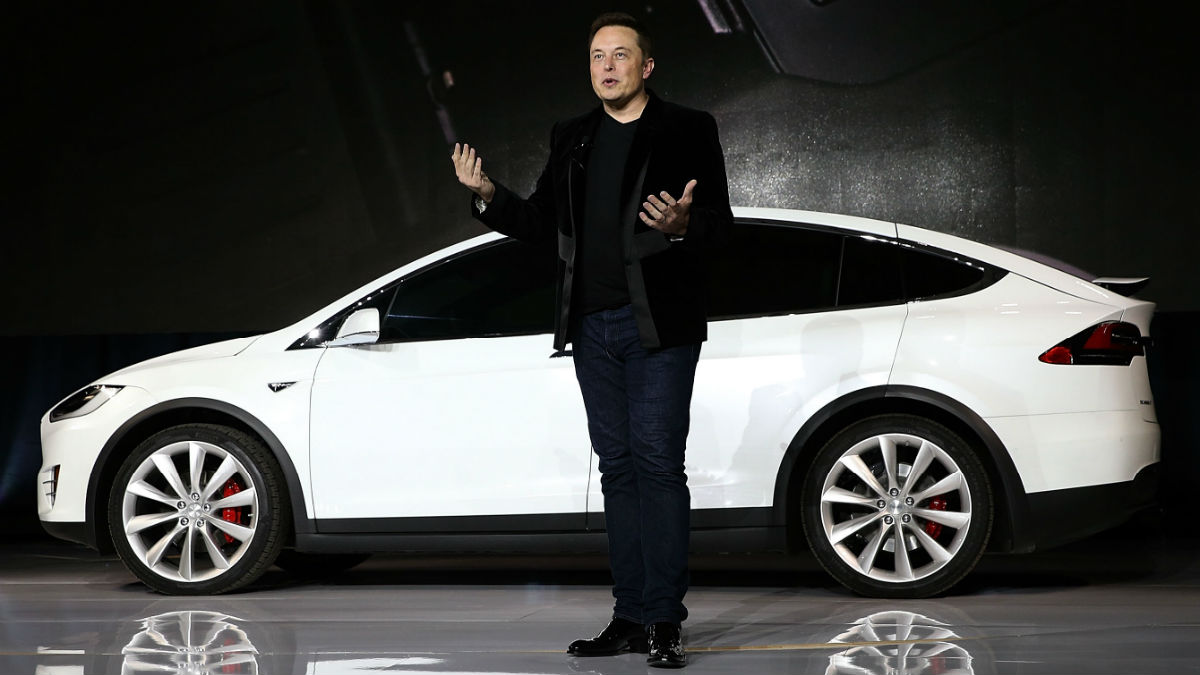Virgin Orbit launches satellites into space in ‘historic’ test flight
Richard Branson’s company successfully sends rocket into orbit using a modified Boeing 747

A free daily email with the biggest news stories of the day – and the best features from TheWeek.com
You are now subscribed
Your newsletter sign-up was successful
Richard Branson says Virgin Orbit has “achieved something many thought impossible” after his satellite launch company reached space for the first time in a demonstration flight yesterday.
In what was described as “a mission to open space for everyone”, Virgin Orbit used a modified Boeing 747 carrier aircraft to send its LauncherOne rocket into orbit to deploy ten payloads for Nasa’s Launch Services Program (LSP).
How does it work?
The Week
Escape your echo chamber. Get the facts behind the news, plus analysis from multiple perspectives.

Sign up for The Week's Free Newsletters
From our morning news briefing to a weekly Good News Newsletter, get the best of The Week delivered directly to your inbox.
From our morning news briefing to a weekly Good News Newsletter, get the best of The Week delivered directly to your inbox.
Based in Long Beach in California, Virgin Orbit is part of “a wave of companies targeting the launch market for increasingly capable small satellites”, The Guardian says.
Branson’s firm, which is separate from Virgin Galactic, had tried and failed to launch a rocket in May last year.
That attempt was “thwarted by a breached propellant line feeding liquid oxygen to the booster’s first-stage Newton-3 engine”, the BBC reports. But “no such problems occured this time”.
Virgin Orbit’s launch system uses a technique called “air launch” in which the rocket is launched from under the wing of a customised Boeing 747-400 carrier aircraft - dubbed “Cosmic Girl” - rather than from a traditional launch pad on the ground.
A free daily email with the biggest news stories of the day – and the best features from TheWeek.com
The rocket then detaches from the aircraft and fires up its engines to soar up into space.
According to a statement from Virgin Orbit, “in addition to improving the payload capacity of the rocket, this technique allows the LauncherOne system to be the world’s most flexible and responsive launch service - flying on short notice and from a wide variety of locations to access any orbit”.
Sunday’s successful launch, from California’ Mojave Air and Space Port, was a “crucial milestone” for the company that “should set the company up to begin commercial operations of its launch system very soon”, says TechCrunch.
What next?
The launch is a “historical first”, says Virgin Orbit, which notes that “no other orbital class, air-launched, liquid-fueled rocket had successfully reached space before”.
The firm will officially transition into commercial service for its next mission, with launches already booked by clients including the US Space Force and the UK’s Royal Air Force. Commercial customers getting in on the action include US-based Swarm Technologies, Italy’s SITAEL and Denmark’s GomSpace.
“A new gateway to space has just sprung open,” Virgin Orbit CEO Dan Hart said last night. “That LauncherOne was able to successfully reach orbit today is a testament to this team’s talent, precision, drive, and ingenuity.
“Even in the face of a global pandemic, we’ve maintained a laser focus on fully demonstrating every element of this revolutionary launch system. That effort paid off today with a beautifully executed mission.”
Branson added: “This magnificent flight is the culmination of many years of hard work and will also unleash a whole new generation of innovators on the path to orbit.”
Mike Starling is the former digital features editor at The Week. He started his career in 2001 in Gloucestershire as a sports reporter and sub-editor and has held various roles as a writer and editor at news, travel and B2B publications. He has spoken at a number of sports business conferences and also worked as a consultant creating sports travel content for tourism boards. International experience includes spells living and working in Dubai, UAE; Brisbane, Australia; and Beirut, Lebanon.
-
 How the FCC’s ‘equal time’ rule works
How the FCC’s ‘equal time’ rule worksIn the Spotlight The law is at the heart of the Colbert-CBS conflict
-
 What is the endgame in the DHS shutdown?
What is the endgame in the DHS shutdown?Today’s Big Question Democrats want to rein in ICE’s immigration crackdown
-
 ‘Poor time management isn’t just an inconvenience’
‘Poor time management isn’t just an inconvenience’Instant Opinion Opinion, comment and editorials of the day
-
 The rise of the space economy
The rise of the space economyShoot for the moon
-
 The long journey to becoming an astronaut
The long journey to becoming an astronautIn the Spotlight Soaring into space remains a dream of children and adults alike – but how do you become an astronaut?
-
 What is hepeating?
What is hepeating?In the Spotlight ‘Many women’ recognise this harmful workplace behaviour and various studies show evidence of it
-
 The return of the World Economic Forum in Davos
The return of the World Economic Forum in DavosIn the Spotlight Does the annual gathering of the global business elite have any relevance, when globalisation is in swift retreat?
-
 Cryptocurrencies: luna’s death spiral
Cryptocurrencies: luna’s death spiralIn the Spotlight A vicious crash has shaken confidence in the entire crypto ecosystem
-
 Elon Musk’s Twitter takeover: trouble for Tesla?
Elon Musk’s Twitter takeover: trouble for Tesla?In the Spotlight It’s hard to find a solid business case for the billionaire’s buyout of the social media platform
-
 Disney vs. conservatives: the latest chapter of the war on ‘woke’
Disney vs. conservatives: the latest chapter of the war on ‘woke’In the Spotlight No doubt company is becoming increasingly political, in a way that rankles with many people
-
 ‘Rocking the boat’: the disgrace of P&O Ferries
‘Rocking the boat’: the disgrace of P&O FerriesIn the Spotlight Stern action is needed to counter companies who believe breaking the law is justifiable